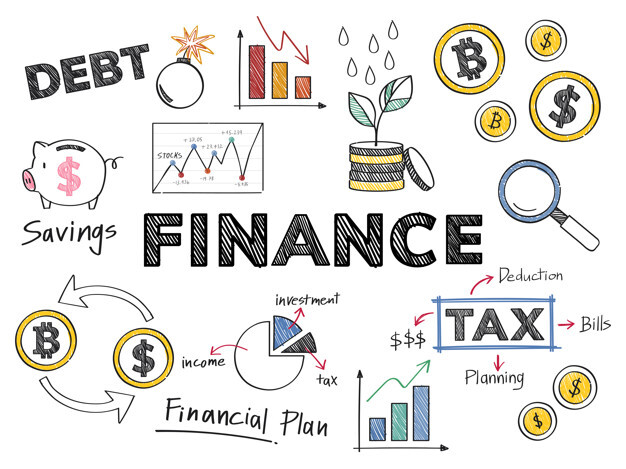
Finance is a branch of economics that evaluates the use of resources by individuals or organizations. This discipline is based on methodologies for the correct management of resources, decision-making and the accounting record of the economic activity of financial agents.
The origin of this word goes back to the Latin term finis, which means "end." This word referred to the end of a debt, which occurred when it was paid. If you think about it, today’s finances start from the same principle, and have to do with commercial exchanges established between people and organizations.
Importance of finances
Finances are important because they allow people, companies and even States to properly manage the resources they have. Through this exercise, financial agents can make responsible and informed decisions, estimate risks in their investments and generate financial strategies to increase these resources.
Think about it this way: if you want to buy a house you can’t just go to a real estate agency and sign a deed. Instead, you need to know your numbers first and know if you can afford a mortgage. You also need to consider what would happen if you lost your job and evaluate rising interest rates. Only with this information in mind can you make good decisions and invest your resources wisely.
This same principle, which applies to personal finances, governs the financial study of entire countries and large organizations whose goal is to make their money work and grow.
What is the purpose of finances
The main purpose of finances is to examine and maintain control of the economic movements of a person or a group to meet their needs, fulfill their obligations and make the most of their resources. Strictly speaking, this is its only direct function.
When finances are managed correctly, people and companies can make investments, expenses and purchases. However, these operations are not carried out by financial managers. Finances only have the task of estimating whether the operation is suitable for economic well-being, whether they involve risks or whether they are good decisions.
As you can see, this discipline is the pillar of a good part of our daily activities and, above all, business.
5 types of finances
As we have seen, proper control of resources is essential to ensure a healthy financial life. But not all people and organizations should do the same with their finances. Knowing the different types of finances that exist is essential to make good financial decisions. Let’s review them.
- Personal Finance
Personal finance is the type of finance we are most familiar with. As you can imagine, it revolves around optimizing the use of resources and managing the financial transactions of specific individuals.
We carry out financial activities of this type on a daily basis: when we buy a product in installments, we monitor our expenses for the week or choose which restaurant we will have lunch at based on our availability of resources. Surprisingly, in many cases we do not even know that we are monitoring our finances, which explains why up to 70% of people do not have long-term financial plans.
In this type of finance, it is common for the individual to manage their personal finances, although in some cases they may rely on private professionals or agents of banking institutions to monitor and manage them.
- Business Finance
Business finance is another type of private finance. It does not respond to the needs of specific individuals, but to the interests of organizations or groups of people that make up a company. In this case, the objective is to make good use of resources in order to grow the business and the economy.
Investments, hiring staff, launching business projects and applying for loans are some good examples of actions that depend on a prior financial study. Only in this way can companies make good decisions, invest their money in the right place and expect to obtain economic benefits as a result of them. This becomes especially important when taking into account that two out of three businesses close due to poor financial management.
For this type of finance, it is common for companies to delegate control to accounting experts and financial agents who make up part of the business management team. These professionals are in charge of enforcing a company’s obligations, evaluating the state of its operations and staying alert to the risks of its commercial movements.
- Public finances
Public finances are the counterpart of private finances. This type of finance seeks to make good use of a State’s public resources in order to promote collective well-being. The real peculiarity of this type of finance is that it is public in nature. This means that the administration of resources is subject to the scrutiny of people and should not be involved in personal interests.
Through the exercise of public finances, state authorities can acquire debts, invest in infrastructure and distribute resources in their territory.
Due to the importance of this type of finance, it is common for governments to have areas dedicated to the administration of national wealth. These departments are responsible for collecting taxes, allocating budgets to other departments and making decisions for public investment.
- International finances
International finances can be both public and private, either because trade routes are established between countries or because a State invests in private industry. In any case, the objective is to evaluate the relevance of economic operations with other organizations in the global sphere.
This type of finance is macroscopic and requires a great deal of evaluation work by all parties involved in a decision to borrow, purchase, acquire or invest. This is why there are large organizations, such as the Stock Exchange, that allow us to estimate risks and predict the success of international investments.
For this type of financial exercises, it is common